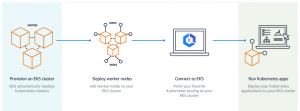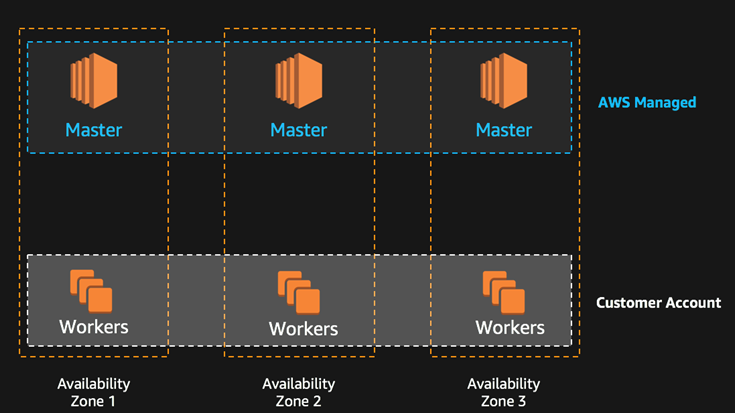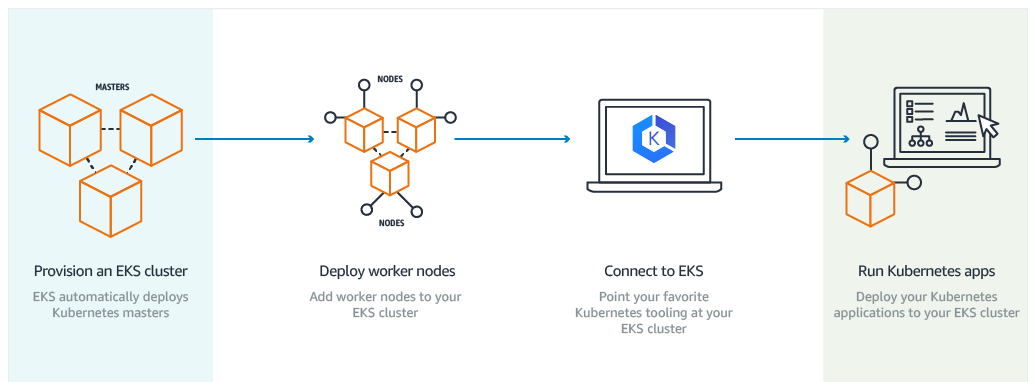
AWS Elastic Container Service for Kubernetes, AWS EKS, is a new AWS fully managed service running Kubernetes out-of-box on AWS without needing to install and operate / manage our own Kubernetes clusters. . Gone are the days when we (63% of Kubernetes workloads as per CNCF spent time and effort setting up and running / managing Kubernetes (Master and a cluster of workers) on AWS EC2 instances with no support from AWS service. Not only this, there was whole lot of high availability requirements in relation with Kubernetes which needed to be managed by running Kubernetes master on different availability zones (AZs).
Key Features of AWS EKS
- Support for existing plugins and tooling from the Kubernetes community.
- Ease of migrating existing Kubernetes deployments in on-premises datacenters or public clouds without any significant code changes. This is sowing to the fact that there is AWS EKS provides full compatibility with applications running on any standard Kubernetes environment.
- High availability of Kubernetes masters out-of-box due to the fact that Amazon EKS automatically runsthree Kubernetes masters across three Availability Zones in order to ensure high availability and protect against a single point of failure. Following diagram represents the same:

Figure 1. AWS EKS Kubernetes Masters – High Availability (Image credit: AWS)
- Automated version upgrades and patching for the Kubernetes masters
- Out-of-box integration with AWS features such as some of the following:
- Elastic Load Balancing (ELB) for load distribution
- IAM for authentication
- VPC for isolation
- PrivateLink for private network access
- CloudTrail for logging.
- Elastic Load Balancing (ELB) for load distribution
- Managed security for Kubernetes clusters running on AWS ECS
Four Steps to Deploying Your First Cloud-native Apps on Kubernetes
- Provision an EKS cluster
- Deploy worker nodes
- Connect to EKS
- Run Kubernetes apps
Following diagram represents the above steps:

Figure 2. Deploy first cloud-native apps on Kubernetes (Image credit: AWS)
Greater details can be found on this announcement blog on AWS EKS.
- The Watermelon Effect: When Green Metrics Lie - January 25, 2026
- Coefficient of Variation in Regression Modelling: Example - November 9, 2025
- Chunking Strategies for RAG with Examples - November 2, 2025

I found it very helpful. However the differences are not too understandable for me